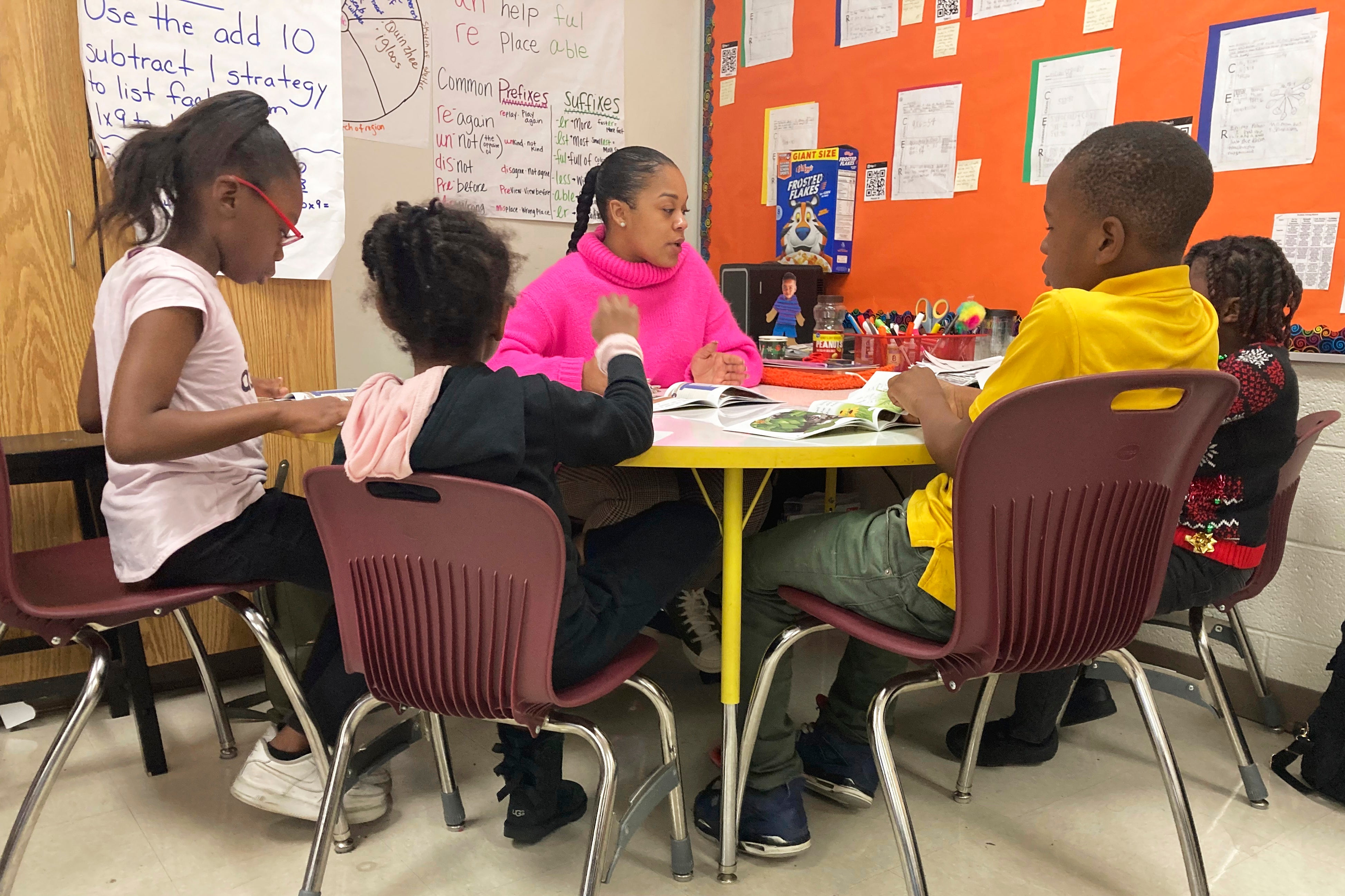LOCALIZE IT: Schools try to overcome pandemic reading woes

EDITORS/NEWS DIRECTORS:
Third graders across the country face a looming crisis. The majority will move on to fourth grade next year and will be expected to read well. But many haven’t received adequate instruction because of pandemic-fueled school interruptions and reliance in some places on ineffective teaching methods — likely including schools in your area.
From their first days in school until the end of third grade, students receive support from their teachers to perfect their reading and comprehension. Starting in fourth grade, students are expected to read class instructions, math problems and books by themselves and to improve their reading on their own.
Research shows students who do not read proficiently by the end of the third grade are four times more likely to drop out of school or not finish high school on time.
Experts believe one of the most effective ways to help students catch up is with so-called “high dosage tutoring,” essentially small-group or one-on-one tutoring with a skilled teacher multiple times a week. Some districts have used COVID relief money to pay for this expensive help, while others have struggled to find the staff to offer intensive support.
Just as districts try to make up for pandemic interruptions to learning, many also are shifting the way they teach young children to read. More educators are embracing phonics-based lessons in line with scientific research showing many students need to learn this systematic approach to decoding words.
___
FIND AP's STORIES HERE
‘Too much to learn’: Schools race to catch up kids’ reading
An end to the reading wars? More US schools embrace phonics
ADD STATE OR LOCAL CONTEXT
Reading scores reflected historic learning setbacks after the pandemic disrupted U.S. schools. In the fall, the National Assessment of Educational Progress — known as the “nation’s report card” — released 2022 scores from hundreds of thousands of fourth and eighth graders across the country. No region was spared. (Find your state's scores here.)
The test didn’t measure this year's third grade class, where the losses may be even more profound.
One of the nation’s major test makers, NWEA, released a study in December that found third graders are currently suffering the largest pandemic-related learning losses in reading, compared with older students in grades four to eight. Third graders also are not readily recovering, NWEA found. (The report has comparisons by grade and school subject, along with context about racial and socioeconomic disparities.)
Amid the reading concerns, lawmakers across the country have passed legislation aimed at helping struggling readers. Often parents of children with dyslexia are leading the push. The International Dyslexia Association, which has a state-by-state map tracking the legislation, said those efforts include required training and reading.
SUGGESTED REPORTING THREADS
— What percentage of your districts' third graders are reading on grade level? Is that higher or lower than before the pandemic? How do those scores differ from state averages? What happened to the scores of subsets of students, such as those who qualify for government-subsidized lunches? If the scores changed, what are the reasons districts are offering?
— How has the district or school worked to help students read proficiently? Has the district added after-school tutoring? Has it extended the school day? Will the district offer programs this summer to help struggling readers? How many students are already signed up for summer school — is it as many as the district was targeting? What could the district have done differently to attract more students to summer school?
— What will the district do for students who are not reading proficiently by the end of third grade? Are they considering having them repeat a grade? Why or why not? What support will the district offer students who are behind in fourth grade?
— How is your district spending its COVID recovery money? Are officials spending it to help students recover from pandemic learning loss? Are they using effective interventions?
— How are public schools incorporating the science of reading into their curriculum? For instance, is there a district-wide reading curriculum? If so, what is and what approach does it use? If the district has shifted from balanced literacy to a science-of-reading approach, what are they doing to help struggling older students who may have missed out on phonics instruction in the early grades? If they are still using balanced literacy, why?
— What do teachers think about the district's efforts to help struggling readers? What do parents think? Are the efforts sufficient? If so, how do they know? Or do they have concerns about the efforts?
— What are the rules in your state for educating teachers on the science of reading and dyslexia? Is additional legislation pending this year? What does that legislation do?
MORE AP COVERAGE TO REFERENCE
Test scores show historic COVID setbacks for kids across US
2 cities pursued more school for kids; only 1 pulled it off
More kids are repeating a grade. Is it good for them?
Many kids need tutoring help. Only a small fraction are getting it.
Many kids are struggling in school. Do their parents know?
____
Localize It is an occasional feature produced by The Associated Press for its customers’ use. Questions can be directed to Katie Oyan at koyan@ap.org.
____
The Associated Press education team receives support from the Carnegie Corporation of New York. The AP is solely responsible for all content.
Bookmark popover
Removed from bookmarks